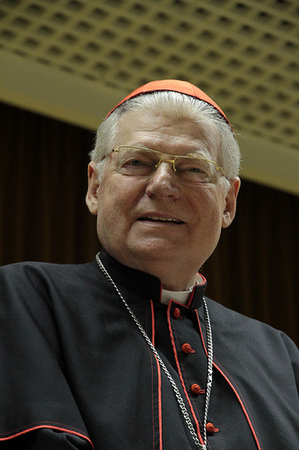Discernment of God’s will difficult, and living with the gift of happiness God hasgiven each of one us is a challenging thing. We can get in the way and obscure what is real and what is fantasy. I was speaking with a friend yesterday and our conversation at one point turned to John Henry Newman. Newman knows all! (So does Balthasar, Ratzinger Giussani, to name a few people). My friend and I are trying to locate happiness: what it is, what it is not, how do I experience it, and where, etc. Happiness is not easy to categorize, accept, give, reverence, promote, etc. What is clear is that true happiness involves God and life in God; what is less clear are the contours of that happiness and even lesser is knowing how my participation in happiness is supposed to be as God wants. If you find theway to happiness that is coherent, let us know. In the meantime, Newman makes sense especially in pointing to the fact that we have to have a level of abandonment to the will of God.
On this day in 1848 Newman wrote the following:
1. GOD has created all things for good; all things for their greatest good; everything for its own good. What is the good of one is not the good of another; what makes one man happy would make another unhappy. God has determined, unless I interfere with His plan, that I should reach that which will be my greatest happiness. He looks on me individually, He calls me by my name, He knows what I can do, what I can best be, what is my greatest happiness, and He means to give it me.
2. God knows what is my greatest happiness, but I do not. There is no rule about what is happy and good; what suits one would not suit another. And the ways by which perfection is reached vary very much; the medicines necessary for our souls are very different from each other. Thus God leads us by strange ways; we know He wills our happiness, but we neither know what our happiness is, nor the way. We are blind; left to ourselves we should take the wrong way; we must leave it to Him.
Continue reading Newman: Happiness, the ways by which perfection is reached


